In Jerusalem, Israel, and throughout the world, ‘Pandemic’ was used a lot this past week.
COVID-19 has spread fear from Wuhan around the globe.
After initial missteps, healthcare systems are learning to meet the challenge.
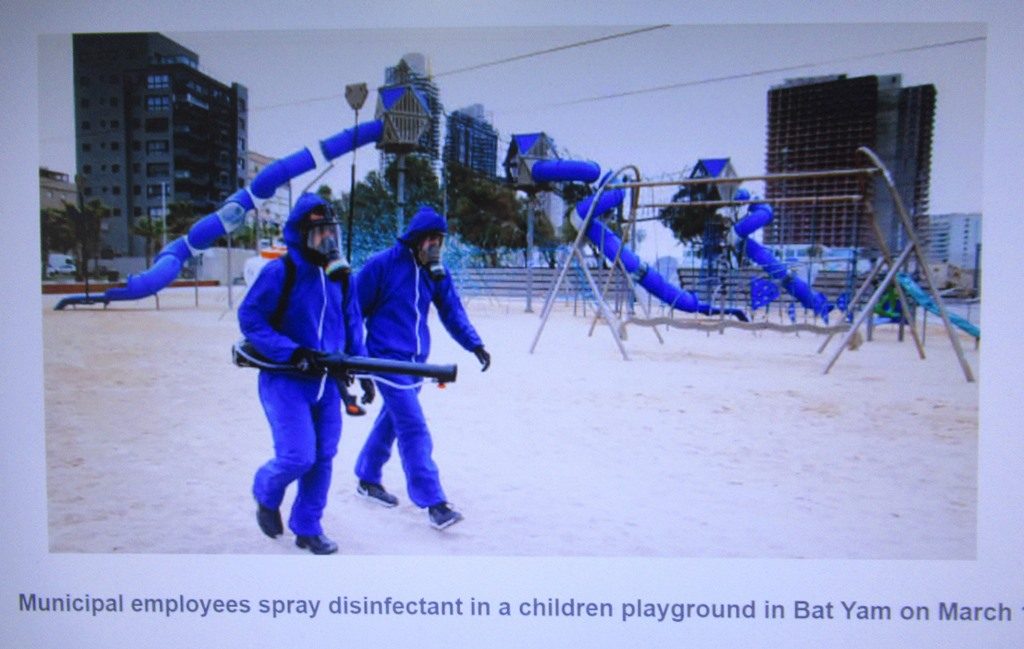
In Israel, increasing restrictions on movement to slow down the spread of the contagious virus have been announced. Dr. Asher Salmon (Shalmon) Israeli Ministry of Health – Head of International Relations has stated Israel has been watching the novel coronavirus since the middle of December.
Last week I joined a mHealth Israel Webinar with medical and technology experts from the US, Germany, Singapore, and Israel to hear what has been learned and recommended best practices.
Most of us are suffering from an ‘Infodemic’ according to Dr. John Whyte, Chief Medical Officer, WebMD. We are being bombarded by information. There was a 6700% increase in internet searches of sore throat and fever. In a Google search, however, he stressed to the international participants, information can be misleading, top-ranked sources are not as important as trusted sources for information.
In Jerusalem, a couple of quick examples of misinformation were from viral Facebook posts. One was supposedly a wedding in a supermarket. It was really a wedding photoshoot and the wedding was held elsewhere.
Much more serious was a series of photographs, supposedly of Jerusalem’s Mamilla Mall parking lot being prepared as an emergency COVID-19 hospital. If you looked carefully at the multiple images, it was obviously NOT Mamilla, and NOT in Jerusalem.
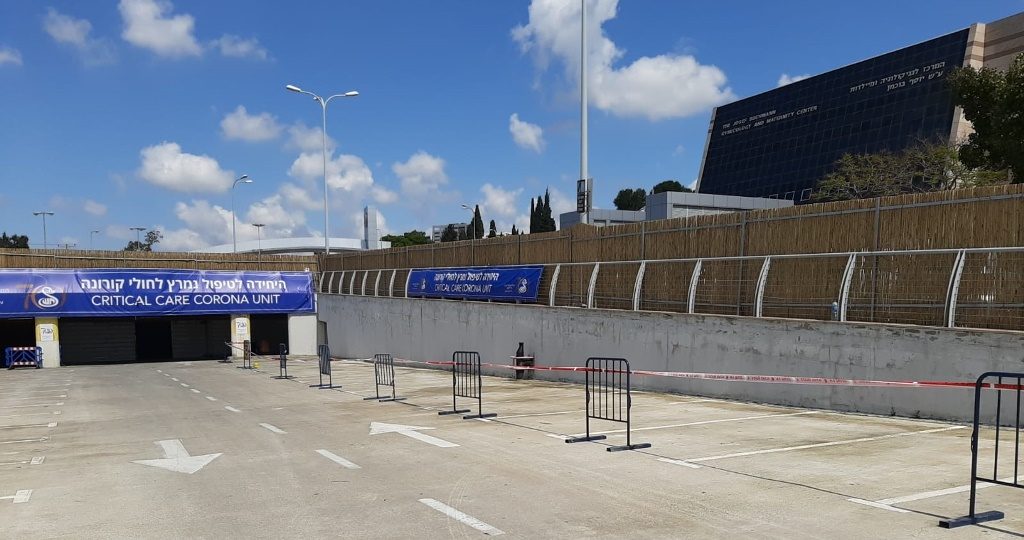
It was the underground parking in Tel HaShomer – Sheba Hospital, which has now been transformed into a 40 bed Corona Critical Care Unit – CCCU.
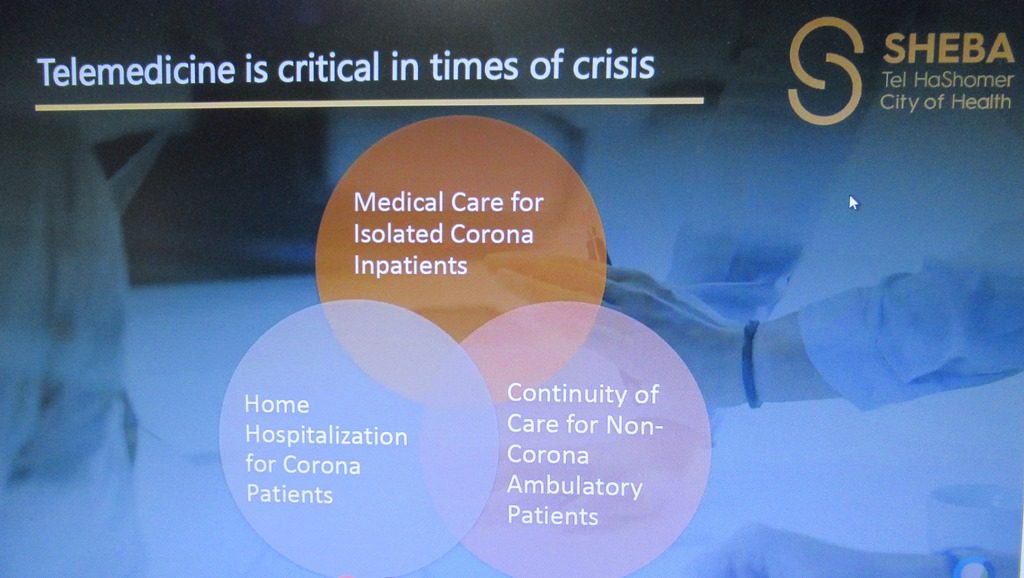
Dr. Galia Barkai, Head of Telemedicine, Sheba Medical Center presented what was being done to meet the challenge of COVID-19. Much of her presentation seemed like science fiction. I have gone to dozens of evenings where Israeli startups have presented. It was wonderful to see some Israeli tech advances being put to use.
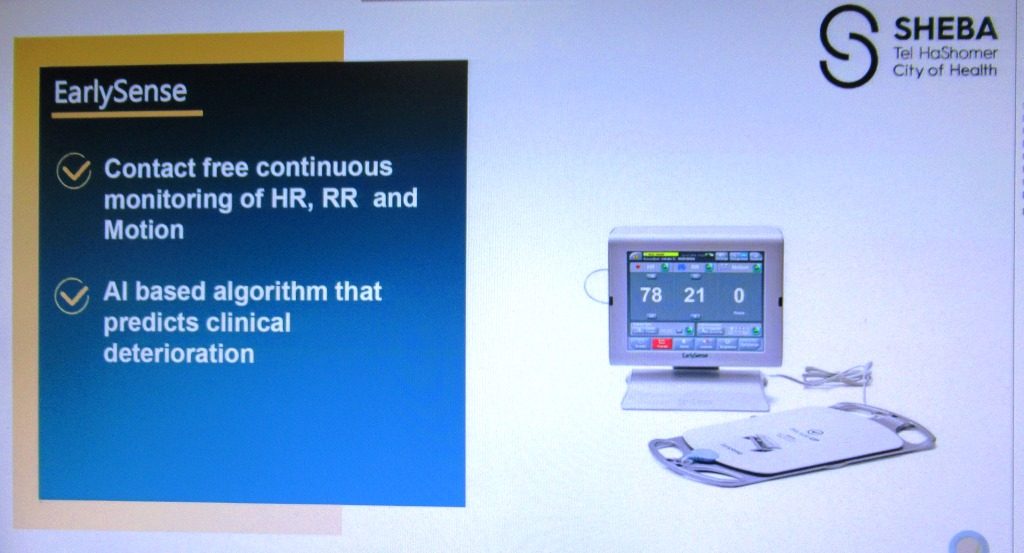
For example, EarlySense, where medical professionals can monitor a patient’s condition without physical contact.
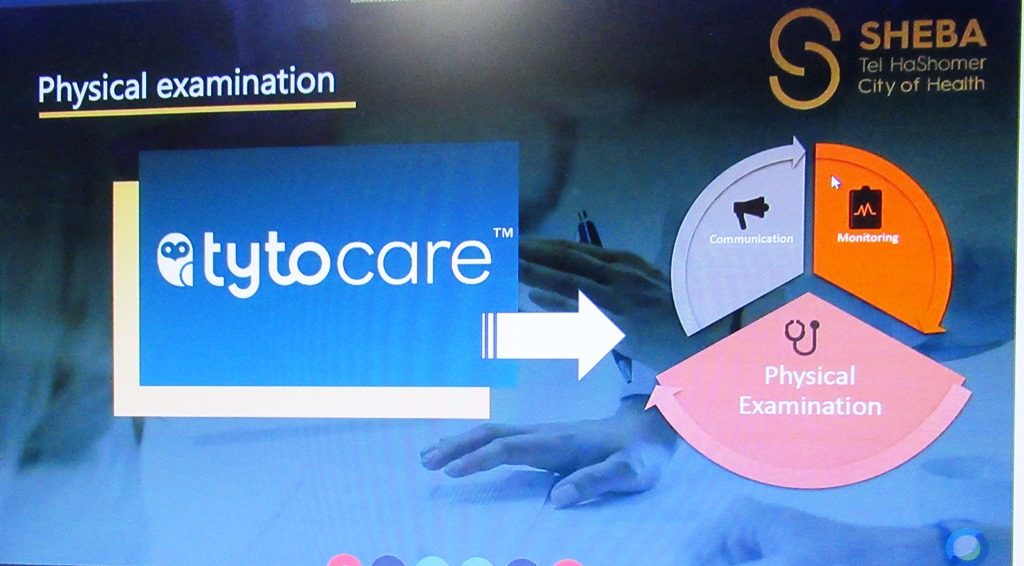
And Tytocare, a physical examination without contact.
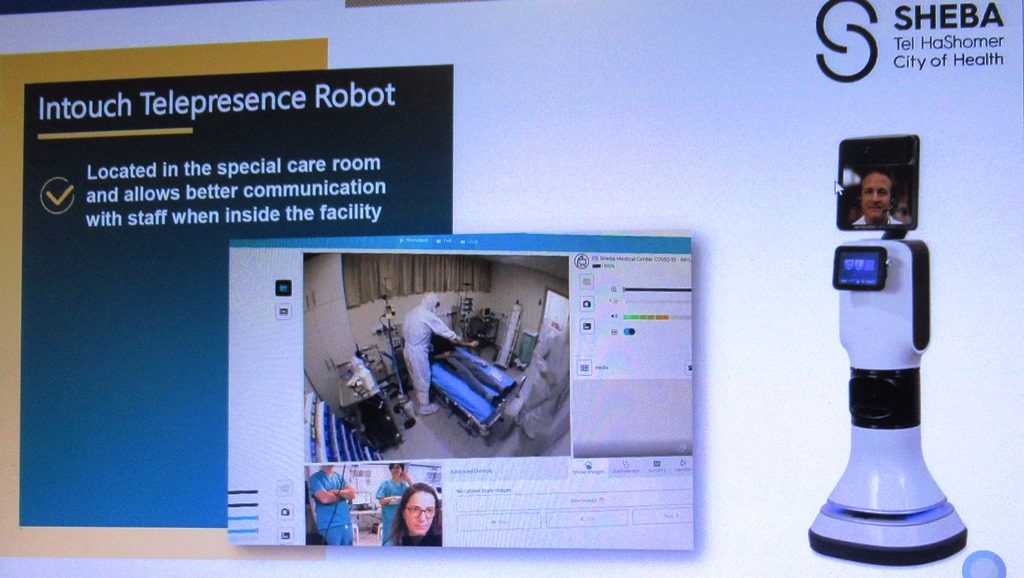
In the hospital, a robot allows less physical contact and closer observation of the patients.
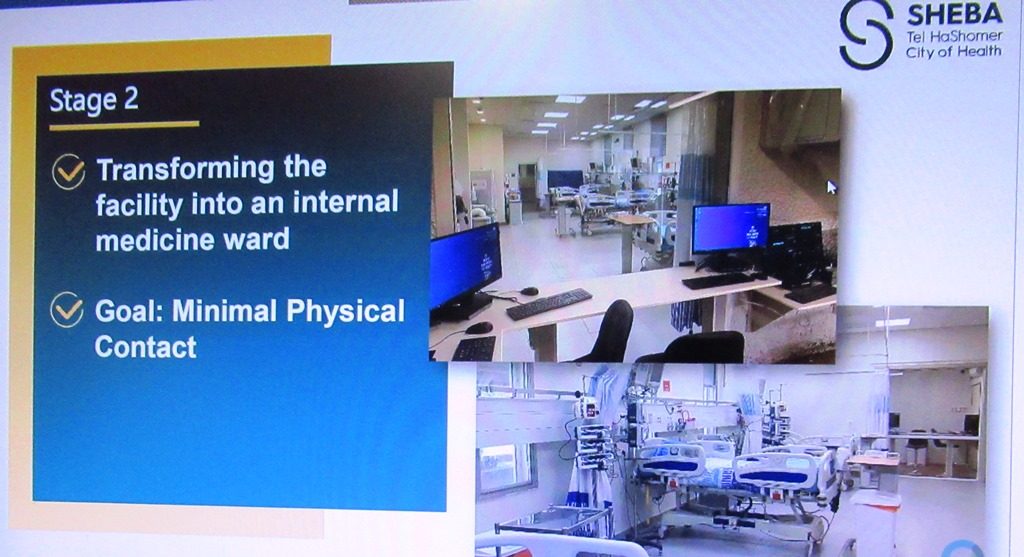
Sheba is on to Stage 2 in the fight against the coronavirus. They have transformed an internal medicine ward into a CCCU. The goal is to protect staff from the virus and provide close observation of their patients. A glass wall was installed, as Dr. Barkai said, like an “aquarium.”
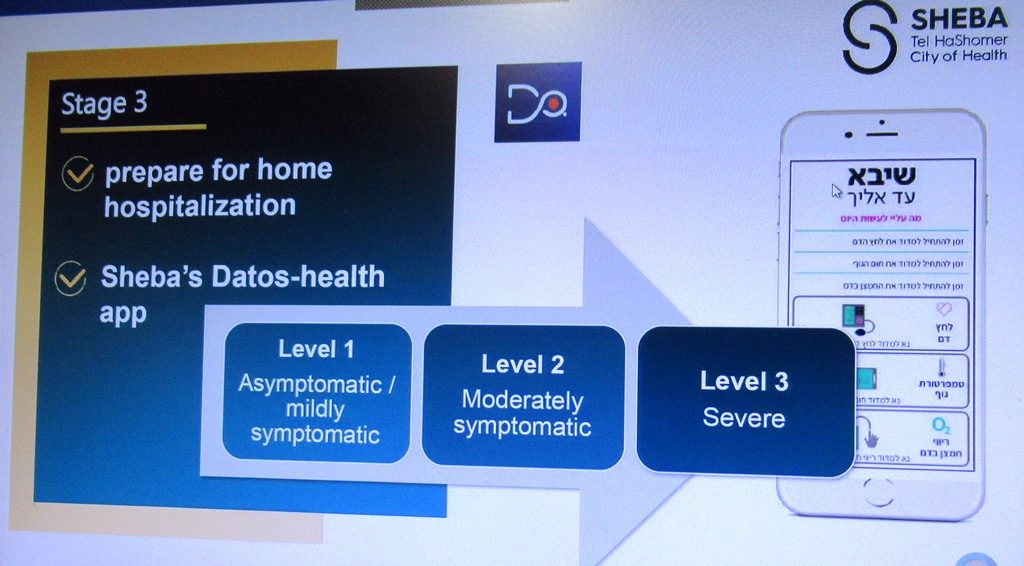
Planned Stage 3 for COVID-19, is to have only the sickest patients hospitalized and less severe cases monitored at home.
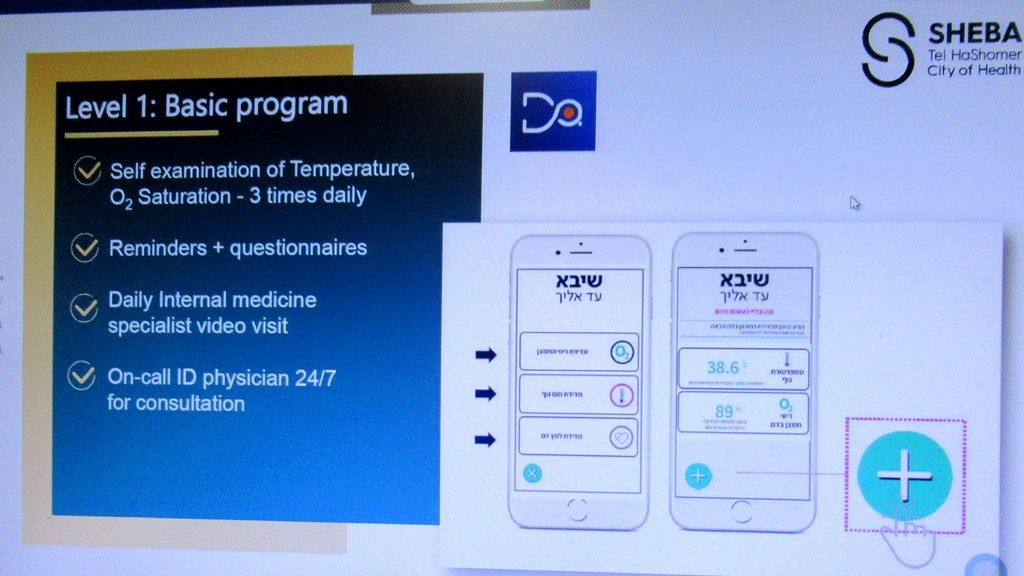
Telemedicine requires self-examination of temperature and Oxygen level, 3 times a day.
A daily video visit is by an Internal medicine specialist, with a doctor on call 24/7 to answer questions.
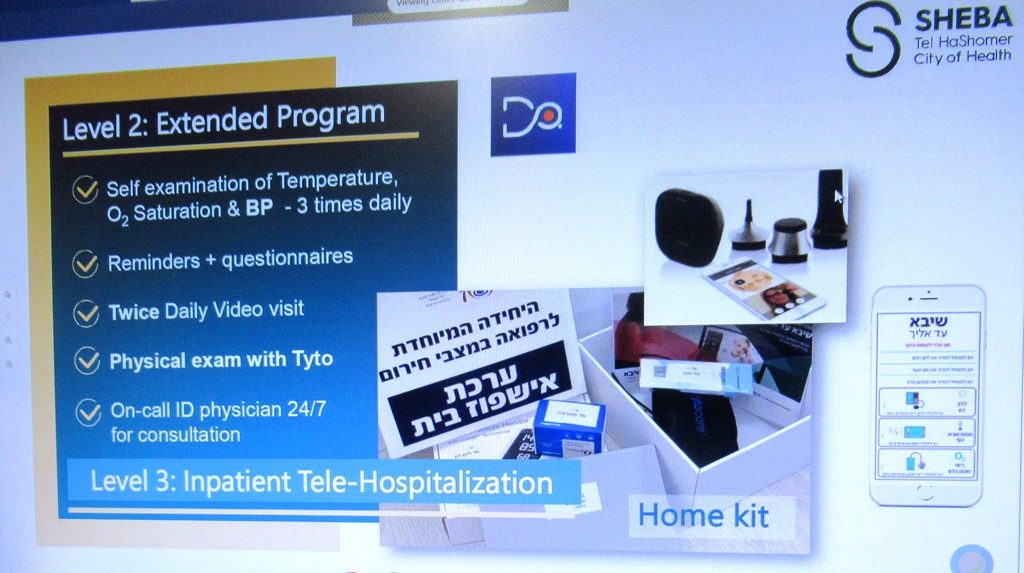
Level 2, has twice a day video visit, and remote physical exam by Tyto.
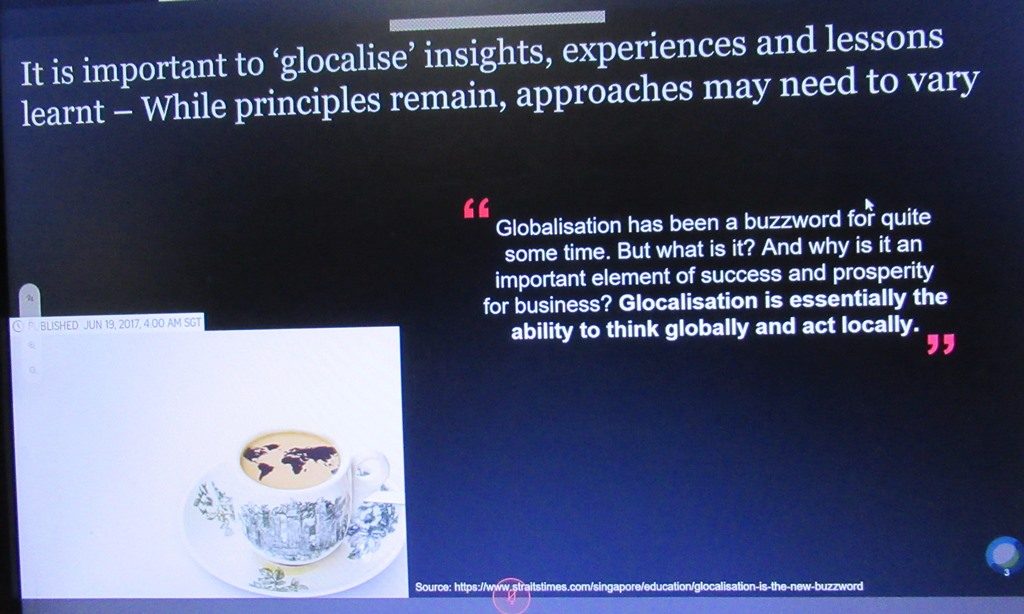
Sharing information, said Dr. Zubin Daruwalla from Singapore, is important to share insights, experiences, and lessons learned. Globalization has been a buzzword for some time.
But Glocalisation is essentially the ability to think globally and act locally.” Principles remain, but approaches may need to vary in different cultures.”
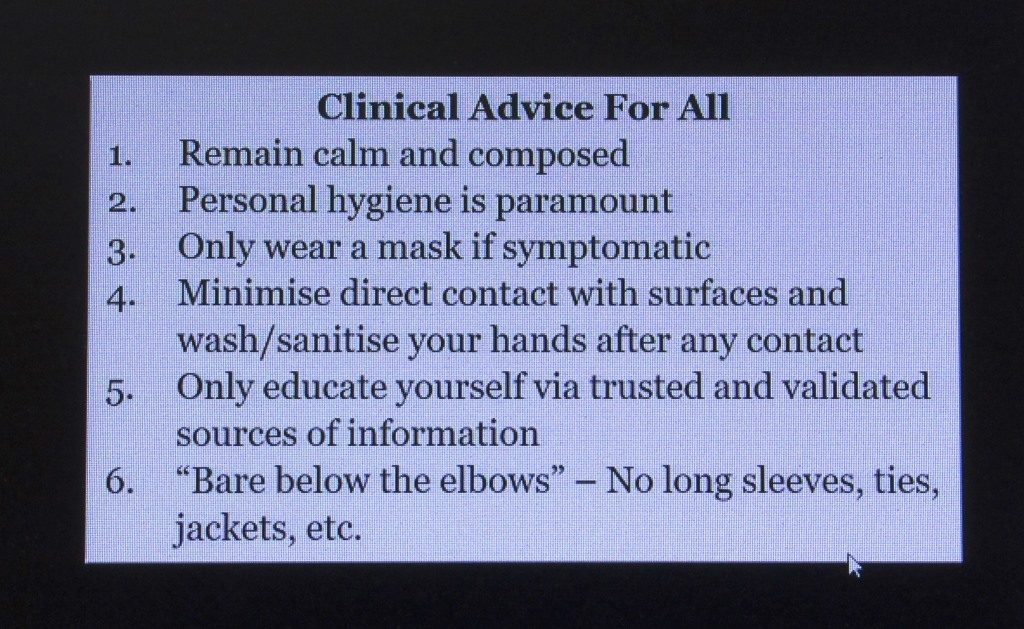
The best summary of COVID-19 expert advice these 6 simple steps.
On Thursday night, March 19, 2020, Israelis came out of their homes for 2 minutes to applaud, to show their appreciation for medical personnel. Hard at work, putting themselves at risk, to treat those affected by the novel coronavirus COVID-19, and say a collective “Thank You!”
Updated: More about Sheba Medical Center HERE
